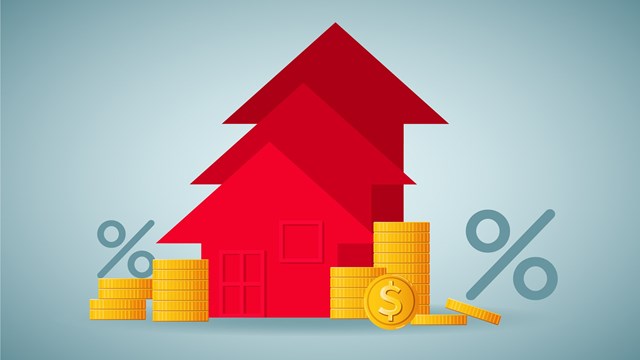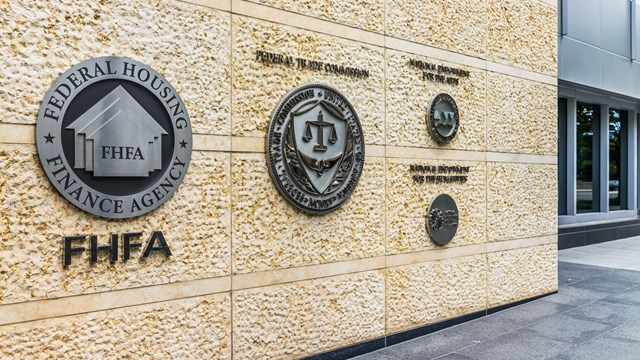
Most co-op buildings carry an underlying mortgage—the cost of which is paid for each month by shareholders as part of their maintenance fees. Quite often, a co-op corporation will seek to finance a major project or building improvement by refinancing their underlying mortgage. The building's board is responsible for this major move within a co-op, and should always proceed with caution.
"Refinancing an underlying mortgage is the most important decision that a board will ever make," says Patrick Niland, president of First Funding of New York, Inc., a commercial mortgage brokerage firm that has specialized in financing for cooperatives and condominiums since 1987. "It affects not only the monthly maintenance, but also the market value of every shareholder's apartment for years to come." Breaking the process down into simple tips and steps can help to alleviate some of the pressure put on the board.
Why ReFi?
According to the experts, the majority of co-ops are still paying on their original underlying mortgages, so most buildings will refinance at one point or another. Panicked that you might be paying a mortgage…forever? Don't worry. Very few loans get carried to maturity, says Niland.
"This rarely happens," agrees Steven Geller, a senior associate with Meridian Capital Group in Manhattan. He says that if a mortgage is ever completely paid off, it's probably because of special circumstances, like a co-op selling off units that it owns to pay the balance.
What happens in those few cases where a co-op does pay off its underlying mortgage? The board could choose to lower monthly maintenance fees—however, one must remember that costs for running a building obviously go up, so maintenance fees could only be lowered slightly. If a building's mortgage is paid off, mortgage experts recommend keeping maintenance fees the same, and building up the capital reserve fund with any surplus.
In most cases however, the mortgage is staying put, and refinancing happens more often than not. So when is it time for your building to refinance?
If interest rates are dropping lower than those on your existing mortgage, it's time to refinance. Or, if your building has had an emergency, or is ready to tackle capital improvements, it might also be a great time to refinance.
Also, if there is any problem with an existing lender, a co-op might want to look into refinancing with a new mortgage company.
Navigating the Process
"One of the resources available is to use a mortgage broker. We can shop the different lenders for the board or manager so they don't have to do the leg work," says Marc Schwaber, president of Preferred Empire Mortgage Company in Melville. According to Schwaber, enlisting the help of a broker saves your co-op time because they will have access to many banks and will be able to pick the best mortgage for your needs.
When it comes to figuring out exactly how much your building should refinance for, there is no set formula to be used. "It differs from building to building," says Schwaber, "depending if it is the refinance of an existing mortgage or if money is being taken out for renovation."
That said, there are a few points every building can keep in mind when trying to estimate the amount for a refinance.
"Make sure the accountant, managing agent, attorney and mortgage broker are involved," says Niland. A co-op's professional team has experience with estimating for future costs. Niland says the biggest mistake a board generally makes is not consulting with these professionals. He also suggests hiring an engineer to assess any capital improvements that might be necessary down the road.
The best way to determine the size of the loan is to sit down with your professional advisors and evaluate various factors. The first consideration is the amount still to be paid on the existing mortgage loan and whether or not the lender has any prepayment penalties that would apply if the co-op decides to pay it off with a refinance. Each bank has different prepayment penalties, says Schwaber.
Taking the amount saved away in the reserve fund into consideration is also crucial, says Niland. "Accountants suggest that there should be a general reserve fund equal to two to four months of mostly operating cash flow," he says.
A co-op should also be aware of the costs of any capital improvements they know will need to be addressed over the next three to five years. "If you add all of that up, you come up with a number [the co-op] could and should borrow," says Niland.
Geller also warns against a common mistake made by boards: not thinking ahead. "We have seen many co-ops take long term deals (15 years or longer) and then find themselves still requiring significant money to replace windows, elevators, roofs, boilers, etc." he says.
"We work with the managing agents specifically going over these things, making sure the co-op is not caught during the term with something we can anticipate up-front," says Geller. "Emergencies happen, but there are so many things which can be avoided with proper planning and experience."
When considering a refinance, you want to keep the monthly payments as low as possible so as not to discourage shareholders. In calculating the monthly payment on the loan, a board must decide if the effects on shareholders' maintenance fees will be too drastic. If they aren't, then the mortgage is reasonable. If the necessary fee increase is really substantial, a co-op may opt to put off a few capital improvements in order to hold the line and not hit shareholders with a major increase.
Types of Mortgages
According to the experts, there are three main types of underlying mortgages available to co-ops. "Most typically the underlying mortgage is a 10-year mortgage with a 30-year amortization," says Schwaber. "However there are 15-year mortgages with a 30-year amortization and 30-year fixed products available."
According to Schwaber, the longer-term loans tend to have higher interest rates, and so most of the time buildings take what's called a "10/30"—the 10-year mortgage with 30-year amortization. The rates tend to be better for the shortest of the terms, he says. After 10 years, these shorter termed loans 'balloon'—meaning they must be paid in full. At that point, it gives the co-op another chance to reassess a building's expenditures and refinance, says Schwaber.
According to Geller, an important point to remember is this: Don't worry about paying off the mortgage. "That's a mindset of individual owners...not of board members running a corporation. A co-op is a business, and the product is the building. The primary concern is maintaining the value of the property, properly maintaining the asset through regular repairs, maintenance and improvements. It takes significant amounts of money to maintain the building, and the cheapest source of that money comes from restructuring the co-op's underlying mortgage," Geller says.
"For this reason, long-term, self-liquidating loans are a major mistake for 99 percent of co-ops," Geller warns. "I don't know of one co-op that could have existed [for] 30-years without the need for new money to maintain the property." Co-ops today have a hard time even making it to the end of a 10-year deal without the need to take out additional money, says Geller.
"The more prudent decision for virtually any co-op," advises Niland, "is to have a 10- to 15-year loan where you have a fixed rate for 10 or15 years and amortization that is on a 30-year schedule. At the end of 10 years, you can reassess the market and your building and figure out what you need."
What happens if your co-op is already stuck in one of those ill-advised, long-term mortgages? "They can pay a huge pre-payment penalty, or get secondary financing," says Niland. "That comes from not thinking long-term. Board members tend not to think long-term—but professional advisors do. They can think 'What happens if?' Boards come and go, they change."
There is also another option, says Geller. His company offers co-ops a 'lender contribution' loan. In this type of loan, "co-ops with high-rate loans and large prepayment penalties can refinance with one of our lenders who will actually pay a portion of the prepayment penalty to the current lender in exchange for a premium in the new rate," Geller explains.
"Because interest rates are still so low," he continues, "the additional premium in the new rate usually doesn't change the economics of the new loan. And it gives the co-op the chance to take out additional money to fund capital improvements and/or secure a lower rate for a new 10 or 15 years without having to add significant penalty debt to their mortgage."
Nowadays, being locked into a long-term mortgage isn't as likely to happen, as there are products available with "unsecured lines of credit, which co-ops can tap for emergencies, and to spread-out assessments, reducing the burden on the shareholders," says Geller.
Decisions, Decisions?
Choosing to refinance or a get a new mortgage is a huge decision. It's important to keep in mind what's best for the greater good. Before signing away your most valuable asset, make sure you've accounted for every major expense. Have you looked over your mortgage product options with your team of professionals? Are you planning ahead for any major capital improvements, and have you set some money aside for emergencies?
What all co-op board members need to understand is that they are running a business, and they need to operate that way. The board is charged with operating that business in a prudent fashion for the benefit of the greatest number of shareholders."
Crystal Proenza is associate editor of The Cooperator.






Comments
Leave a Comment